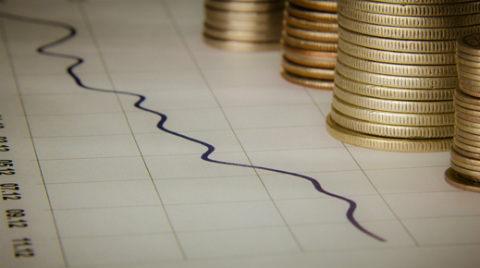How is Economic Forecasting Achieved?
News items containing economic forecasts have become popular reading in recent times. The news is quoted in coffee table discussions, some venturing to guess whether a double-dip recession is on its way. Matti Viren, Professor of Economics at Turku School of Economics at the University of Turku, where do all these forecasts come from?

- Many players engage in economic forecasting, all the way from the Ministry of Finance to banks and international organisations. In the private sector in particular, forecasts are made by a variety of sources, explains Viren.
Naturally, the purpose of a forecast depends on its maker. The state prepares forecasts in order to decide budgets for forthcoming years, while some simply churn out forecasts to gain attention. Most forecasts made by academics are not even published. Instead, they are used for research purposes, mainly political analyses.
According to Viren, the problem lies in the fact that, when most forecasts are published, nothing is revealed about how they are formulated.
- Forecasts which make the news usually only concentrate on a very limited set of variables, such as gross domestic product or the unemployment rate, and ignore other factors. They leave out the phase of the business cycle and cover the future with only one percentage figure. This view is fairly narrow and may result in misguided interpretations. Economic trends cannot be concluded from a single figure.
Towards more precise results
Arriving at more precise forecasts requires the efforts of up to several dozens of people. Phenomena subject to economic laws are combined by closely observing phenomena such as imports, exports and international interest rates. Universities develop models and systems which make forecasting easier.
- Journalists should grill forecasters more, to find out whether the forecasts have been prepared carefully or are merely individual guesswork, Viren affirms.
Even the most carefully crafted forecasts can be mistaken. Forecasts do not actually predict economic trends, but human behaviour, and people do not behave mechanically. Instead, their consumption habits are influenced by the changes they anticipate in the world economy.
- People adjust their consumer behaviour to meet their good or bad future expectations. We should be able to predict how people’s expectations change, Viren states, summarising the difficulty of the task facing economists.
Market economy comes with a price
Forecasts presented by the media can also affect the behaviour of consumers and companies. Self-fulfilling forecasts present a genuine chicken and egg dilemma – which came first, reduced consumption or tabloid headlines on an approaching recession.
- Self-fulfilling forecasts often put the economist in a difficult position, as something of a devil’s advocate. Nevertheless, there is no point in viewing the future with rose-tinted spectacles – creating an emotional climate is the task of politicians and decision-makers, not economists, Viren muses.
Reverting to a more regulated economy is not a realistic option, either, although it was easier to forecast economic trends in the past, when currency exchange rates, foreign trade and capital flows were controlled. In today’s world, if partial regulation were reintroduced, ways around it could be found.
- Uncertainty and poor predictability are the price we must pay for living in a free economy.
Viren readily admits that economic forecasting was much easier decades ago, but also has good news for those eager to predict economic trends:
- A least it can’t get any harder than it is now!
Text: Misme Yrjölä
Photos: Ken Teegardin, s_falkow, Misme Yrjölä